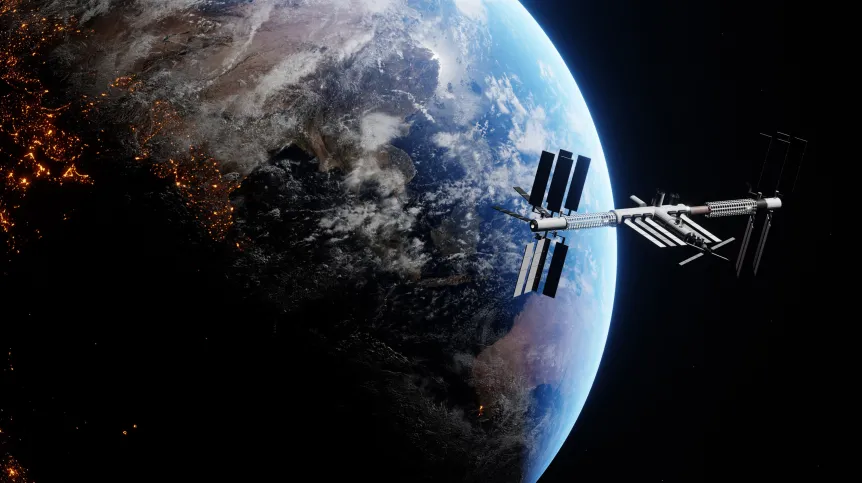
Research that may influence the future nutritional strategies of astronauts staying in reduced gravity conditions will be carried out on the International Space Station (ISS) by the Military University of Technology. The HUMAN GUT MICROBIOTA experiment will examine microorganisms that inhabit the human digestive tract.
The lead researcher in the study planned to be carried out is Professor Elżbieta Trafny from the Biomedical Engineering Center of the Institute of Optoelectronics of the Military University of Technology.
'The HUMAN GUT MICROBIOTA project concerns the study of microorganisms that inhabit the human digestive tract in environmental conditions that are dangerous to human health. These microorganisms are called gut microbiota and human well-being depends on them. Gut microbiota is crucial for the proper functioning of the human digestive, cardiovascular, nervous and immune systems', says Professor Trafny.
She points out that knowledge about the intestinal microbiota is not yet complete, and scientists' attention currently focuses on finding links between microbiota disorders and human diseases.
Research on the intestinal microbiota in people staying off Earth is much more difficult, and the opportunities to participate in it are rare or even unique. It requires long-term and tedious preparations and the participation of specialized research laboratories. It cannot be performed in simulated reduced gravity conditions. It must be carried out with the participation of astronauts who volunteer to participate in the experiment, and researchers must provide them with safe conditions for performing the experiment on the International Space Station.
'An astronaut in space is exposed to stress, cosmic radiation and conditions of reduced gravity. These factors may significantly disturb the microbiota, even resulting in long-term health effects. Microbiota samples collected on the International Space Station are stored and transported to Earth to a research laboratory in a state of deep freezing (at a temperature of approximately minus 80 degrees Celsius). Gut microbiota research is carried out by isolating microbial DNA from samples', says Professor Trafny.
The research team from the Biomedical Engineering Center at the Military University of Technology includes microbiologists with extensive experience in researching complex bacterial consortia. Modern equipment allows them to use the latest research methods, such as next-generation sequencing, to understand the composition of the gastrointestinal microbiota. 'Our experience in examining the microbiota in patients, acquired in cooperation with hospitals, allows us to use these techniques and analyse the obtained results with appropriately developed bioinformatics tools', Trafny says.
The microbiota of astronauts has been the subject of research several times, including a NASA study with a pair of twins. However, those projects concerned long-term missions. The only experiment similar to the one proposed in the Polish project was performed by a team of Chinese scientists on the Tiangong Space Station. They collected samples before and after a short (up to two weeks) stay in Earth orbit and showed significant changes in the astronauts' gut microbiota.
Scientists from the Military University of Technology announce that their experiment will be broader because it will be supplemented by samples collected by astronauts during quarantine before launch and during their stay on the International Space Station. In addition, the astronauts will collect samples on Earth a few months before launch and twice after returning from the mission.
According to the team from the Military University of Technology, the results of the research will ultimately allow them to plan nutritional and therapeutic methods and habits for astronauts.
The Military University of Technology will conduct two biomedical experiments as part of the Polish Mission to the ISS. In addition to the HUMAN GUT MICROBIOTA project, the IMMUNE MULTIOMICS project led by Dr. Alicja Trębińska-Stryjewska has also been approved. The second project will analyse blood cells for genetic research to explain how the human immune system adapts to microgravity.
The European Space Agency (ESA) has signed seven contracts with Polish institutions and companies for running experiments.
PAP - Science in Poland, Karolina Duszczyk
kol/ agt/ kap/
tr. RL













